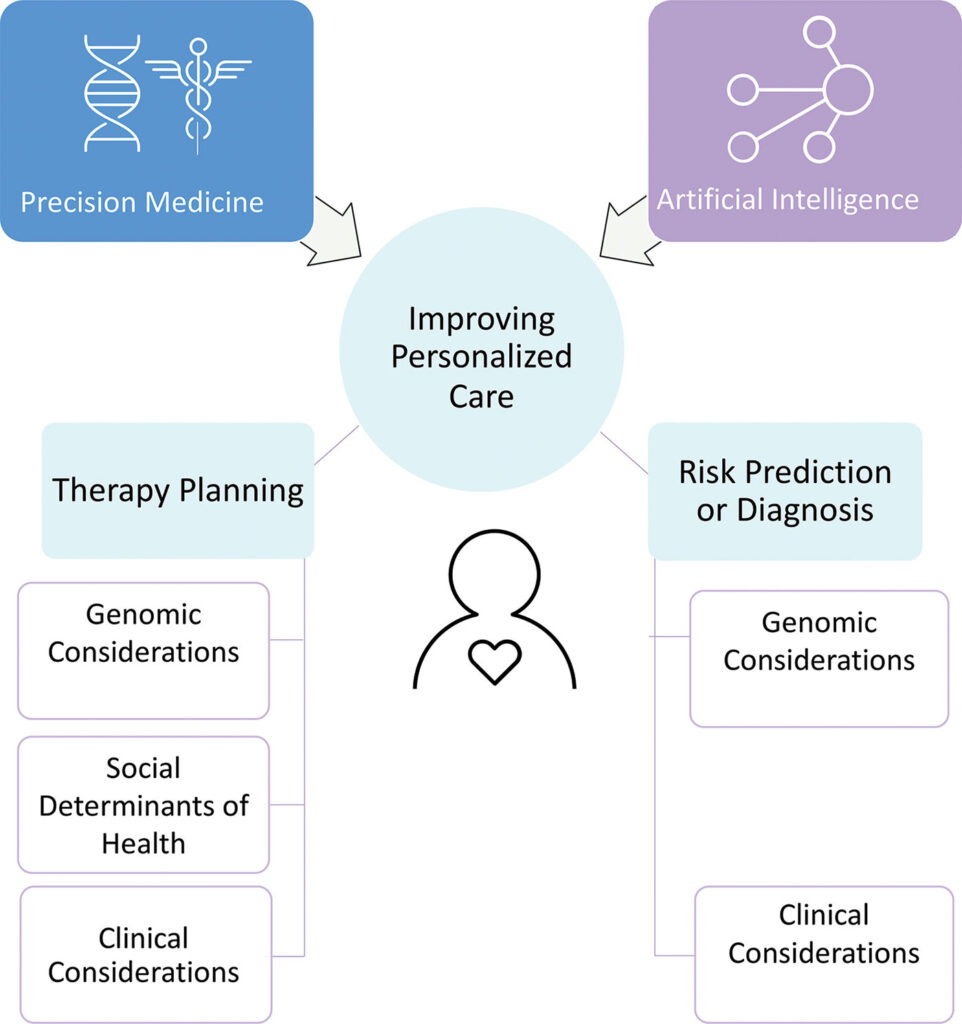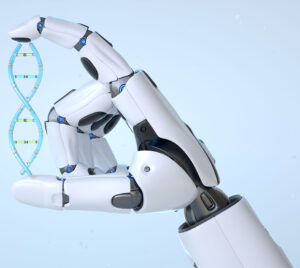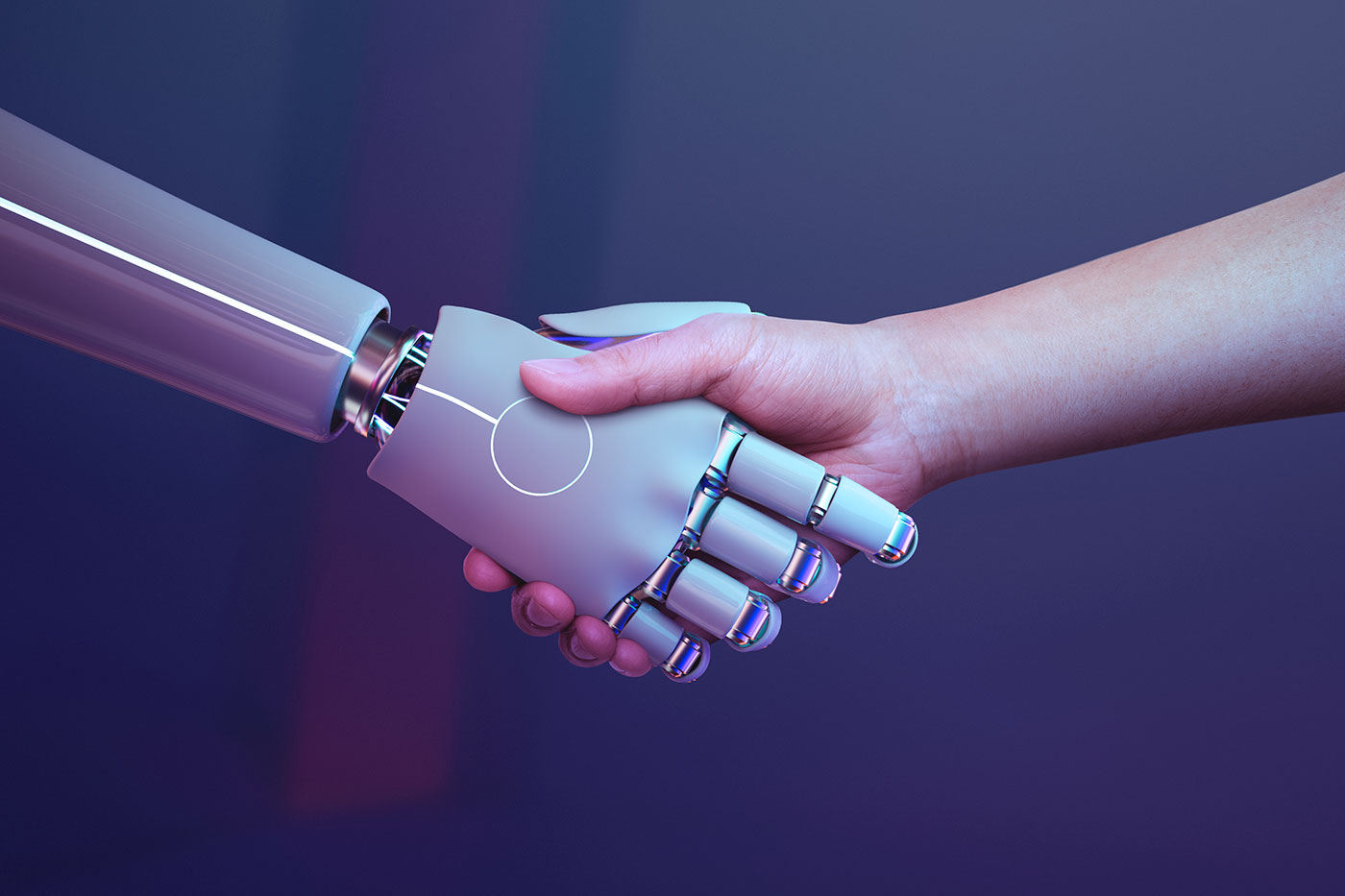
In today’s world, artificial intelligence (AI) is playing a crucial role in revolutionizing various industries, including healthcare. A recent study revealed that AI can perform medical interviews and provide diagnoses based on a patient’s medical history, potentially transforming the healthcare industry. This development can help doctors make more accurate diagnoses and provide better treatment options to patients.
AI can analyze vast amounts of data and identify patterns humans might miss. This ability of AI can help healthcare professionals detect diseases at an early stage, which can save lives. Moreover, AI can help create personalized patient treatment plans by considering their medical history, genetics, lifestyle, and other factors.
Alongside diagnostic capabilities, AI makes headway in unexpected areas such as human interaction. AI-powered assistants can provide emotional support to patients, which can help improve their mental health and well-being. Additionally, AI-powered technologies can help improve communication between healthcare professionals and patients, enhancing the overall quality of care.

A better bedside manner?
Articulate Medical Intelligence Explorer (AMIE) is a chatbot designed to communicate with patients and provide them with medical advice. In a recent study, AMIE was tested against human doctors to assess its empathy and conversation quality performance. The study found that AMIE outperformed physicians in 24 out of 26 criteria for conversation quality. This means that the chatbot could provide patients with a similar level of empathy and support as human doctors, and in some cases, even better.
This is a significant development in the healthcare field, as it suggests that AI-powered chatbots like AMIE can support patients in ways that human doctors may be unable to. For example, AI chatbots can provide patients with 24/7 medical advice, which is not always possible for human doctors who have limited availability. Additionally, AI chatbots can analyze vast amounts of patient data to provide personalized medical advice, which can be difficult for human doctors to do promptly.
Overall, the results of this study are promising and suggest that AI-powered chatbots like AMIE have the potential to revolutionize the healthcare industry by providing patients with more accessible and personalized medical advice.
AI for better accessibility
AI has the potential to improve healthcare access in remote or underserved areas. AI-powered telemedicine enables patients receive medical advice from doctors and specialists without needing physical visits or travel at any time and from anywhere. This can significantly benefit patients who might not otherwise have access to medical care due to distance or other barriers.
AI can also help streamline the healthcare process by automating routine tasks, simplifying administrative procedures, and reducing waiting times. For instance, AI-powered chatbots can help patients book appointments, manage prescriptions, and ask medical questions without human intervention. This can save time and resources for healthcare providers and improve the patient experience.
Moreover, AI can aid healthcare professionals in diagnosing and treating diseases accurately and efficiently. AI algorithms can analyze medical images, detect patterns, and provide insights that might be difficult for human experts to see. This can help doctors make more informed decisions and improve patient outcomes.
Diagnostics and drug discovery with AI
AI has become an increasingly valuable tool in the healthcare industry. One of its most notable applications is diagnosing complex diseases like skin cancer. In recent years, AI-powered deep-learning models have been developed to assist dermatologists and doctors in identifying skin lesions. These models have been trained on tens of thousands of images, allowing them to improve diagnostic accuracy.
AI algorithms can analyze vast amounts of genetic information, clinical trial results, and patient history. This allows them to detect patterns and relationships that may not be immediately apparent to humans. Using this approach, researchers have discovered new medications and treatments for various conditions, including cancer and multiple myeloma.
Thanks to AI, researchers have identified new drug targets and designed more effective drugs targeting the underlying mechanisms of different diseases. This breakthrough may lead to better outcomes and quality of life for patients.
AI-powered systems can assist healthcare professionals in creating personalized treatments and therapies for patients based on their genetic makeup and medical history. This customized approach to treatment can result in improved patient outcomes as they receive treatments tailored to their specific needs and characteristics.

Drawbacks of medical AI
When considering the use of AI in healthcare, it is crucial to remember that although it may provide more accurate diagnoses than some doctors, it cannot replace the personal connection that patients can experience from face-to-face interactions. Patients often require more than accurate diagnoses and effective treatments; they also need emotional support and understanding from their healthcare providers. Without the human touch, patients may feel isolated, anxious, and even depressed. Therefore, it is essential to balance the use of AI with the importance of human relationships in healthcare.
With the increasing use of AI technology in healthcare, there is a growing concern about the possibility of conveying misinformation to patients through these tools. This can happen for various reasons, such as incorrect data input or flawed algorithms. Patients may receive inaccurate information from AI tools, which can sow confusion, mistrust, and frustration, ultimately damaging the relationship between patients and physicians.

Continuous monitoring and evaluation of the AI tools’ performance can help identify and rectify errors or biases, enhancing the effectiveness and reliability of the tools. It is essential to conduct comprehensive testing and validation to ensure these systems are safe and effective before implementing them in clinical care. Regulatory bodies such as the World Health Organization have issued guidelines for developing and evaluating AI in healthcare to ensure that AI algorithms remain transparent, explainable, and impartial.
However, despite these guidelines, the results of studies with AI systems have not yet been peer-reviewed, which means there is still uncertainty about their safety and efficacy. Therefore, it is crucial to proceed with caution and continue to monitor the use of AI in healthcare. This will help ensure that the technology is not only accurate, but also safe, effective, and ethical.
A future fueled by technological innovations
As research in the field of healthcare advances, the potential benefits of AI in the healthcare industry are becoming increasingly evident. AI can revolutionize healthcare in several ways, such as improving diagnoses and drug recommendations, which can save lives and reduce healthcare costs. With further research and development, AI systems could be designed to detect early signs of diseases and monitor patients’ health in real-time, providing patients with better health outcomes and greater peace of mind.

Although the use of AI in healthcare is associated with specific challenges like ethical considerations and privacy concerns, the potential benefits are too significant to be ignored. As AI technology evolves, it will likely become a standard healthcare tool. This would enhance diagnostic accuracy, provide timely and cost-effective care to patients, and offer greater peace of mind to everyone involved.
Looking towards the future of healthcare, we have reasons to be optimistic about the positive impact of AI on the lives of patients and healthcare professionals. AI-powered assistants can help patients manage their health more effectively by providing personalized advice and reminders while freeing doctors to focus on complex cases. Additionally, AI can assist healthcare institutions in streamlining their operations, reducing costs, and improving patient outcomes. Overall, the future of healthcare seems significantly brighter thanks to the continued development and integration of AI systems
Read More:
- Artificial intelligence in disease diagnosis: a systematic literature review, synthesizing framework and future research agenda, January 2022
- The Chatbot Revolution: Transforming Healthcare With AI Language Models, October 2023
- Precision Medicine, AI, and the Future of Personalized Health Care, October 2020
- How algorithms could bring empathy back to medicine, March 2019
- Google AI has better bedside manner than human doctors — and makes better diagnoses, January 2024
- ChatGPT And Depression: Exploring AI’s Role In Mental Health Care,
November 2023 - Role of Artificial Intelligence within the Telehealth Domain, August 2019
- Seeing The Future: Artificial Intelligence For Age-Related Macular Degeneration, July 2023
- AI-Powered Diagnosis of Skin Cancer: A Contemporary Review, Open Challenges and Future Research Directions, February 2023
- Artificial intelligence (AI) in personalized medicine: AI-generated personalized therapy regimens based on genetic and medical history: short communication, November 2023
- AI-powered therapeutic target discovery, July 2023
- Al Algorithm Predicts Drug Targets, Leads to Promising Results for Experimental Cancer Treatment, January 2020
- Doctor-patient interactions in the age of AI: navigating innovation and expertise, August 2023
- Potential impact of AI on the doctor-patient relationship, December 2021
- How Will Artificial Intelligence Affect Patient-Clinician Relationships? May 2020
- World Health Organization releases guidelines for AI regulation in healthcare, October 2023
William A. Haseltine, PhD, is chair and president of the think tank ACCESS Health
International, a former Harvard Medical School and School of Public Health
professor and founder of the university’s cancer and HIV/AIDS research
departments. He is also the founder of more than a dozen biotechnology
companies, including Human Genome Sciences.













